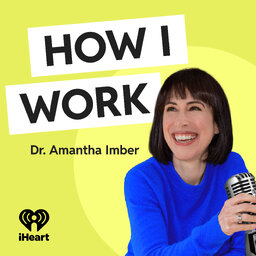24 Things for 2024: Kemi Nekvapil's approach to crafting a purposeful year
Kemi Nekvapil loves a ritual. And my goodness, she has some good ones. From her 24 things for 2024 through to her annual planning and reflection rituals, Kemi lives a purposeful life.
And that’s what I expected from one of Australia’s leading coaches who has been trained personally by Brene Brown, along with being the international best-selling author of Power.
So what are Kemi’s secrets to being a stand-out coach? How does she incorporate reflection into every week?
And Kemi shares one of the most powerful lessons she has learnt and passes on to her clients - that you should never go to the butcher for bread.
Connect with Kemi: https://www.keminekvapil.com/
Follow Kemi on Instagram: https://www.instagram.com/keminekvapil/
Get your copy of Power: https://www.penguin.com.au/books/power-9781761045240
My new book The Health Habit is out now. You can order a copy here: https://www.amantha.com/the-health-habit/
Connect with me on the socials:
If you are looking for more tips to improve the way you work and live, I write a weekly newsletter where I share practical and simple to apply tips to improve your life. You can sign up for that at howiwork.co
Visit https://www.amantha.com/podcast for full show notes from all episodes.
Get in touch at amantha@inventium.com.au
CREDITS Produced by Inventium
Host: Amantha Imber
Sound Engineer: Rowena Murray
In 1 playlist(s)
How I Work
You know those annoyingly successful people who seem to have it all figured out? Time to steal their…Social links
Follow podcast
Recent clips

BEST OF: I burnt out completely last year. This is how I recovered.
27:41

BEST OF: The People-Pleasing Trap: How Laura Henshaw escaped it (and how you can too)
35:19

BEST OF: Sahil Bloom on building a scoreboard that reflects what matters
37:07
 How I Work
How I Work